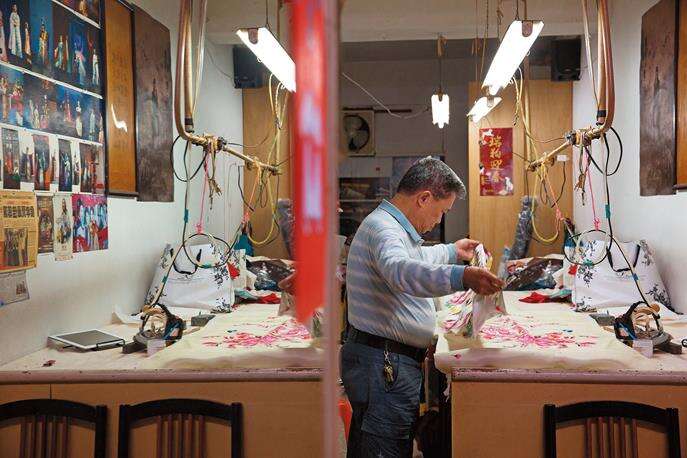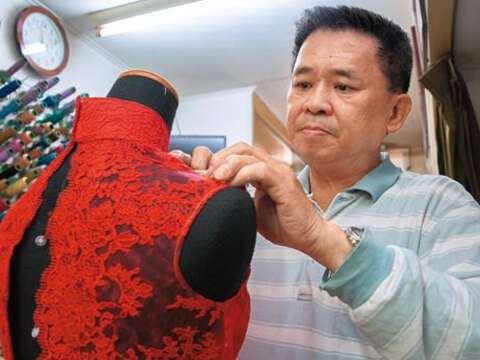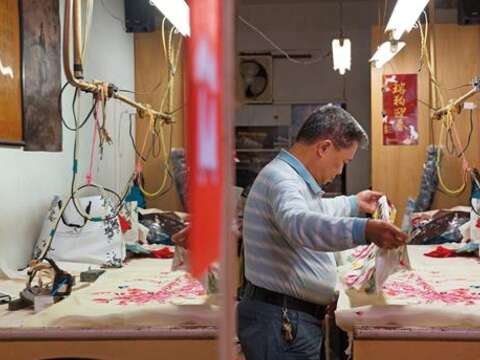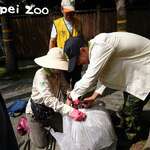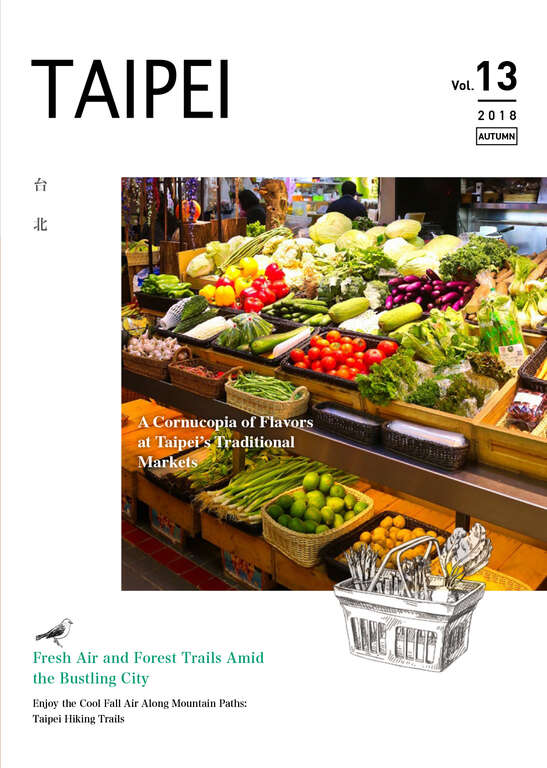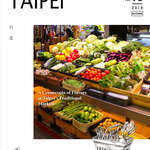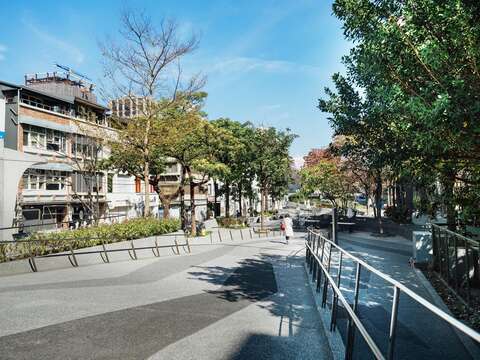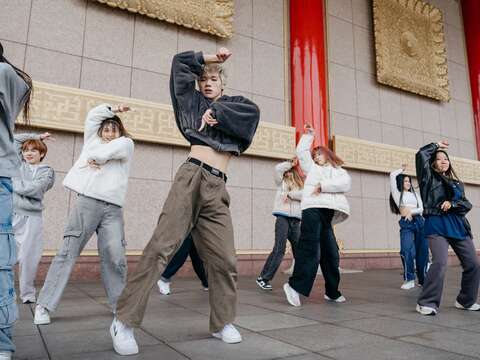Post date:2018-09-11
1587
Yu-Feng Cheongsam’s Chen Zhongxin –
Sewing Needle Master of Yarn Graphics
Article Wu Jingwen
Photos Lin Weikai
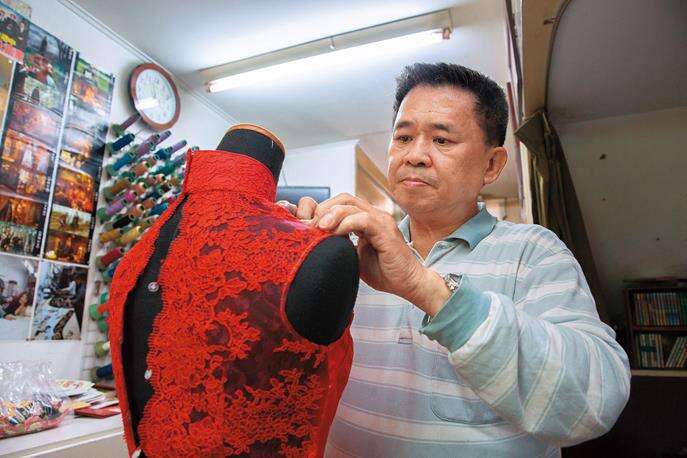
When you walk into an alley across from Taipei Xia-Hai City God Temple (台北霞海城隍廟) in Dadaocheng (大稻埕), you will feel the hustle and bustle start to fade away. If you keep going for fewer than 100 meters, you’ll see a simple, tiny store on your right. Who would think such a shop could bring to life legends of the Tang dynasty (唐朝)? The man behind the scenes is Chen Zhongxin (陳忠信), second generation owner of Yu-Feng Cheongsam (玉鳳旗袍).
Before the clothing industry boom, women used to wear customized cheongsam, or qipao, to important events. A woman from a rich family might even wear her cheongsam to go shopping at a local market. In the early days of Taipei City, cheongsam tailors along Boai Road (博愛路) mostly made their dresses Shanghai-style, and their customer base was mainly politicians’ wives. Along Yangping North Road, among the pubs and taverns, cheongsam tailors mainly employed the Fuzhou style. But after Dadaocheng lost its glory, those pubs and taverns moved their field of operations to Beitou. Chen was a kid back then, but he soon started helping with the family business, assisting his father making cheongsam and delivering finished products to customers. He learned to judge a particular client’s level of prosperity by the fabric they chose.
Tailoring Carefully to Accentuate Body Shape
In the 1980s, President Chiang Ching-kuo (蔣經國) ordered a crackdown on the sex trade, which led to the end of the bustling nightlife of Beitou. This affected Yufeng’s business seriously, and moreover, the garment industry had kicked off around the same time, and so fashions changed. With fewer and fewer customers, Chen had to take in some cloth-altering work in order to support his family.
Although the idea of changing profession crossed Chen’s mind, he decided to stay in front of his work table and sewing machine, and hold on to his small shop using only the threads, needles, tailor’s chalk and wooden rulers that had always been the tools of his trade. It wasn’t until art director, Huang Wenying (黃文英) came to ask him to make costumes for the movie Flowers of Shanghai (海上花), directed by Hou Hsiao-Hsien (侯孝賢), that he got involved in film and theater. Quite often he stayed up late to meet a deadline. After helping make the movie The Assassin (刺客聶隱娘) in 2015, Yu-Feng Cheongsam shot to fame; and even joined the costume team for Silence (沉默), directed by Hollywood legend, Martin Scorsese. Such fame has attracted many people to come and ask Chen to design cheongsam for them.
In customizing a cheongsam, a tailor needs to pay attention to three areas of the body: the bust line, the belly and the hips. Chen has seen all kinds of bodies and he states proudly, “You can always find a way to cover up a not-so-perfect body shape.” The way people nowadays constantly use their computers and cell phones often results in poor posture or a stiffened body, and thus affects the way they look when they stand up or dress. But Chen’s magic tailoring skills triumph over every challenge. Through cutting, sewing and positioning a fabric pattern at just the right spot, he is able to hide the less-flattering aspects of body shape and accentuate a woman’s best attributes. “My cheongsam can cover up all flaws of a woman’s body and dress every curve perfectly. You can’t tell if any part of the wearer needs a little improving or not!”
Upgrading Strategy to Keep up With the Times
Chen employs modern technology in the making of his traditional cheongsam, in particular, a tablet on which he displays a portfolio of his work. He uses an iPad to show customers how he fitted previous customers, enabling them to choose exactly the style and fabric they want. He can then adjust the chosen cloth’s pattern to the right position and then add piping color to the image. Despite his long experience, Chen doesn’t stick to old routines, but instead applies a “keeping up with the times” attitude. “Back in the old days, women wore belly bands and cotton wraps, but modern women wear bras. I put my father’s methods away, and tailor to meet modern customers’ needs. I keep adjusting and testing. If an apprentice asks you a question, you can’t just dig out something from the past to brush him or her off. After all, trends keep changing, and skills are always improving,” Chen says.
Back in the day, you needed old customers to bring in the new ones; now, an entrepreneur must rely on the Internet to promote business. Chen says that if The Assassin hadn’t won the Golden Horse Award, he might have ended up pursuing another career. “Before this store became famous, some customers didn’t trust us and would give us trouble. We’d have to keep explaining everything to them. But after the movie won the award, everybody had confidence in us, and some customers even asked me to autograph their cheongsam!” This award-winning experience has led many production companies to come work with Chen. “No matter how difficult a case is, I continue to take up the challenge and keep working.”
Chen is sixty-something now and describes his own life by comparing it to Taiwanese opera. “When I watch Taiwanese opera, and see how those experienced actors express the characteristics of their roles so effortlessly, whether singing or reading lines, I feel I can do the same in my work. This is what I call a real life achievement.”
Gallery
Popular articles
 TAIPEI QUARTERLY 2018 AUTUMN Vol.13
TAIPEI QUARTERLY 2018 AUTUMN Vol.13 Chef Ah Chi – Beitou Market is a Training Ground for Chefs (TAIPEI QUARTERLY 2018 AUTUMN Vol.13)
Chef Ah Chi – Beitou Market is a Training Ground for Chefs (TAIPEI QUARTERLY 2018 AUTUMN Vol.13) Titan Visits Xinfu Market – Seeking Authentic Taiwanese Flavors (TAIPEI QUARTERLY 2018 AUTUMN Vol.13)
Titan Visits Xinfu Market – Seeking Authentic Taiwanese Flavors (TAIPEI QUARTERLY 2018 AUTUMN Vol.13) Enjoy the Cool Fall Air Along Mountain Paths Taipei Hiking Trails (TAIPEI QUARTERLY 2018 AUTUMN Vol.13)
Enjoy the Cool Fall Air Along Mountain Paths Taipei Hiking Trails (TAIPEI QUARTERLY 2018 AUTUMN Vol.13) A Peaceful Heaven Hidden Behind Six Boulders Xiangshan Hiking Trail (TAIPEI QUARTERLY 2018 AUTUMN Vol.13)
A Peaceful Heaven Hidden Behind Six Boulders Xiangshan Hiking Trail (TAIPEI QUARTERLY 2018 AUTUMN Vol.13) A Green Path With Echoes of History – Jiantanshan Hiking Trail (TAIPEI QUARTERLY 2018 AUTUMN Vol.13)
A Green Path With Echoes of History – Jiantanshan Hiking Trail (TAIPEI QUARTERLY 2018 AUTUMN Vol.13)
 Yu-Feng Cheongsam's Chen Zhongxin – Sewing Needle Master of Yarn Graphics (TAIPEI QUARTERLY 2018 AUTUMN Vol.13)
Yu-Feng Cheongsam's Chen Zhongxin – Sewing Needle Master of Yarn Graphics (TAIPEI QUARTERLY 2018 AUTUMN Vol.13)